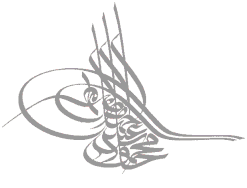Portal:Turkey
Merhaba! Welcome to the Turkey portal
 Flag of Turkey | |
.svg.png.webp) | |
Turkey (Turkish: Türkiye Turkish pronunciation: [ˈtyɾcije]), officially the Republic of Türkiye (Turkish: Türkiye Cumhuriyeti [ˈtyɾcije dʒumˈhuːɾijeti] (![]() listen)), is a transcontinental country located mainly on the Anatolian Peninsula in Western Asia, with a small portion on the Balkan Peninsula in Southeast Europe. It borders the Black Sea to the north; Georgia to the northeast; Armenia, Azerbaijan, and Iran to the east; Iraq to the southeast; Syria and the Mediterranean Sea to the south; the Aegean Sea to the west; and Greece and Bulgaria to the northwest. Cyprus is off the south coast. Most of the country's citizens are ethnic Turks, while Kurds are the largest ethnic minority. Ankara is Turkey's capital and second-largest city; Istanbul is its largest city and main financial centre.
listen)), is a transcontinental country located mainly on the Anatolian Peninsula in Western Asia, with a small portion on the Balkan Peninsula in Southeast Europe. It borders the Black Sea to the north; Georgia to the northeast; Armenia, Azerbaijan, and Iran to the east; Iraq to the southeast; Syria and the Mediterranean Sea to the south; the Aegean Sea to the west; and Greece and Bulgaria to the northwest. Cyprus is off the south coast. Most of the country's citizens are ethnic Turks, while Kurds are the largest ethnic minority. Ankara is Turkey's capital and second-largest city; Istanbul is its largest city and main financial centre.
One of the world's earliest permanently settled regions, present-day Turkey was home to important Neolithic sites like Göbekli Tepe, and was inhabited by ancient civilizations including the Hattians, Hittites, Anatolian peoples, Mycenaean Greeks, Persians, and others.
Following the conquests of Alexander the Great which started the Hellenistic period, most of the ancient regions were culturally Hellenized, and this continued during the Byzantine era. The Seljuk Turks began migrating to Anatolia in the 11th century, which started the Turkification process. The Seljuk Sultanate of Rum ruled Anatolia until the Mongol invasion in 1243, when it disintegrated into small Turkish principalities. Beginning in the late 13th century, the Ottomans united the principalities and conquered the Balkans, while the Turkification of Anatolia further progressed during the Ottoman period. After Mehmed II conquered Constantinople (now Istanbul) in 1453, Ottoman expansion continued under Selim I. During the reign of Suleiman the Magnificent, the Ottoman Empire became a global power.
From the late 18th century onwards, the empire's power declined with a gradual loss of territories. Mahmud II started a period of modernization in the early 19th century. The Young Turk Revolution of 1908 restricted the authority of the Sultan and restored the Ottoman Parliament after a 30-year suspension, ushering the empire into a multi-party period. The Three Pashas took control with the 1913 coup d'état, and the Ottoman Empire entered World War I as one of the Central Powers in 1914. During the war, the Ottoman government committed genocides against its Armenian, Greek and Assyrian subjects. After its defeat in the war, the Ottoman Empire was partitioned.
The Turkish War of Independence against the occupying Allied Powers resulted in the abolition of the Sultanate on 1 November 1922, the signing of the Treaty of Lausanne (which superseded the Treaty of Sèvres) on 24 July 1923 and the proclamation of the Republic on 29 October 1923. With the reforms initiated by the country's first president, Mustafa Kemal Atatürk, Turkey became a secular, unitary and parliamentary republic. Turkey remained neutral during most of World War II, but entered the closing stages of the war on the side of the Allies.
Turkey played a prominent role in the Korean War and joined NATO in 1952. During the Cold War years, the country endured two military coups in 1960 and 1980, and a period of economic and political turmoil in the 1970s. The economy was liberalized in the 1980s, leading to stronger economic growth and political stability. Since 2002, the country's political system has been dominated by the AKP and its leader Recep Tayyip Erdoğan, under whom a decade of rapid growth in nominal GDP took place until 2013, which was followed by a period of recession and stagnation in terms of USD-based nominal GDP between 2013 and 2020, and high inflation as of 2023. The AKP government's initial economic achievements, which were financed through privatization revenues and loans, were overshadowed by democratic backsliding and an erosion in the separation of powers and civil liberties, which gained momentum after the parliamentary republic was replaced by an executive presidential system with a referendum in 2017.
Turkey is a regional power with a geopolitically significant strategic location. The economy of Turkey, which is a founding member of the OECD and G20, is classified among the E7, EAGLEs and NICs, and currently ranks 19th-largest in the world by nominal GDP and 11th-largest by PPP. Turkey is a charter member of the United Nations, the IMF and the World Bank; a founding member of the OSCE, OIC, BSEC, ECO, MIKTA, TURKSOY and OTS; and an early member of NATO. After becoming one of the early members of the Council of Europe in 1950, Turkey became an associate member of the EEC in 1963, joined the EU Customs Union in 1995, and started accession negotiations with the European Union in 2005. Turkey has a rich cultural legacy shaped by centuries of history and the influence of the various peoples that have inhabited its territory over several millennia; it is home to 19 UNESCO World Heritage Sites and is among the most visited countries in the world. (Full article...)
Selected article -
.jpg.webp)
Cappadocia (/kæpəˈdoʊʃəˌ -ˈdoʊkiə/; Turkish: Kapadokya) is a historical region in Central Anatolia, Turkey. It is largely in the provinces of Nevşehir, Kayseri, Aksaray, Kırşehir, Sivas and Niğde.
According to Herodotus, in the time of the Ionian Revolt (499 BC), the Cappadocians were reported as occupying a region from Mount Taurus to the vicinity of the Euxine (Black Sea). Cappadocia, in this sense, was bounded in the south by the chain of the Taurus Mountains that separate it from Cilicia, to the east by the upper Euphrates, to the north by Pontus, and to the west by Lycaonia and eastern Galatia. (Full article...)General images
Did you know -
- ... that the Turkish military coup of 1971 is known as a coup by memorandum? (August 10, 2004) Wikipedia:Recent additions 13
- ... that the Khedive Palace in Istanbul, Turkey, once a mansion for Ottoman governors, now serves as an upscale restaurant? (December 15, 2008) Wikipedia:Recent additions 236
- ... that Monastery of the Transfiguration of Kinaliada is where Byzantine emperor Romanos IV Diogenes was exiled after his eyes were gouged out? (April 9, 2013)
- ... that Trdat the Architect reconstructed the dome of the Hagia Sophia in 989 and built the Cathedral of Ani? (January 6, 2007) Wikipedia:Recent additions 115
- ... that the land of Haydarpaşa Cemetery, a burial ground in Istanbul, Turkey for British Commonwealth soldiers from three wars, belonged to Suleiman the Magnificent? (May 16, 2007) Wikipedia:Recent additions 141
- ... that the crash of Turkish Airlines Flight 634 on 8 January 2003 was the worst crash involving a BAe 146? (January 4, 2009) Wikipedia:Recent additions 238
- ... that Cold War-era spy Hüseyin Yıldırım, sentenced to life without parole in the United States, was later pardoned and secretly extradited to Turkey, where he stayed only one day in prison? (April 2, 2014)
Selected picture
Selected biography -
 Gülen in 2016 |
Muhammed Fethullah Gülen (born 27 April 1941) is a Turkish Islamic scholar, preacher, and a one-time opinion leader, as de facto leader of the Gülen movement. Gülen is designated an influential neo-Ottomanist, Anatolian panethnicist, Islamic poet, writer, social critic, and activist–dissident developing a Nursian theological perspective that embraces democratic modernity. Gülen was a local state imam from 1959 to 1981, and he was a citizen of Turkey until his 2017 denaturalization by the government. Over the years, Gülen became a centrist political figure in Turkey prior to his being there as a fugitive. Since 1999, Gülen has lived in self-exile in the United States near Saylorsburg, Pennsylvania.
Gülen says his social criticisms are focused upon individuals' faith and morality and a lesser extent toward political ends and self describes as rejecting an Islamist political philosophy, advocating instead for full participation within professions, society, and political life by religious and secular individuals who profess high moral or ethical principles and who wholly support secular rule, within Muslim-majority countries and elsewhere. (Full article...)Selected video -
Selected quote -
| “ | A satiated man doesn't know what's hunger, a healthy man doesn't know what's disease. | ” |
Recognized content
Provinces
Topics
Categories
Related portals
WikiProjects
- European Union WikiProject
- Ottoman military history WikiProject
- Greek and Turkish wikipedians cooperation board
- European history WikiProject
- Eastern Europe WikiProject · Caucasia WikiProject
- Balkan military history WikiProject
- Islam WikiProject
- Countries WikiProject · Western Asia WikiProject
- Ancient Near East WikiProject
- Geography WikiProject
Turkish wikipedia
 |
There is a Turkish version of Wikipedia, the free encyclopedia. |
Wikimedia
The following Wikimedia Foundation sister projects provide more on this subject:
-
 Commons
Commons
Free media repository -
 Wikibooks
Wikibooks
Free textbooks and manuals -
 Wikidata
Wikidata
Free knowledge base -
 Wikinews
Wikinews
Free-content news -
 Wikiquote
Wikiquote
Collection of quotations -
 Wikisource
Wikisource
Free-content library -
 Wikiversity
Wikiversity
Free learning tools -
 Wikivoyage
Wikivoyage
Free travel guide -
 Wiktionary
Wiktionary
Dictionary and thesaurus
-
 List of all portalsList of all portals
List of all portalsList of all portals -
 The arts portal
The arts portal -
 Biography portal
Biography portal -
 Current events portal
Current events portal -
 Geography portal
Geography portal -
 History portal
History portal -
 Mathematics portal
Mathematics portal -
 Science portal
Science portal -
 Society portal
Society portal -
 Technology portal
Technology portal -
 Random portalRandom portal
Random portalRandom portal -
 WikiProject PortalsWikiProject Portals
WikiProject PortalsWikiProject Portals







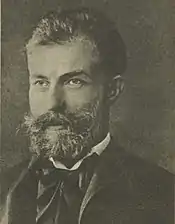


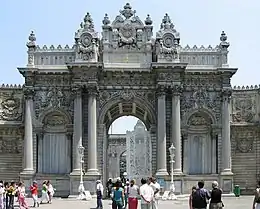





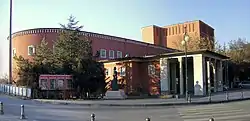














.jpg.webp)
.jpg.webp)

.jpg.webp)




.jpg.webp)













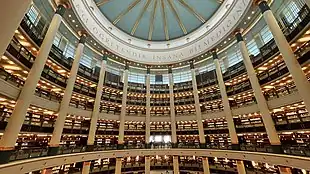
















.jpg.webp)





